How to Manage Mild Side Effects Without Stopping a Medication
Starting a new medication can feel like walking into a storm with no umbrella. You know it’s supposed to help, but suddenly you’re feeling nauseous, tired, or dry-mouthed. It’s enough to make you want to toss the pills and call it quits. But here’s the truth: mild side effects are incredibly common - and usually temporary. In fact, up to 70% of people experience them in the first week or two. The good news? Most don’t need to stop the medicine. With the right moves, you can push through without risking your treatment.
What Counts as a Mild Side Effect?
Not every weird feeling means something’s wrong. Mild side effects are those that bother you but don’t threaten your health. Think: nausea after taking a pill, a little constipation, dry mouth, mild dizziness, or feeling more tired than usual. These aren’t signs your body is rejecting the drug - they’re signs it’s adjusting. The American Medical Association says nearly half of all people who quit their meds do so because of these manageable reactions. That’s a huge number. And most of them could’ve stayed on track with simple, proven strategies.How to Tackle Nausea and Upset Stomach
Nausea is the #1 reason people stop taking pills. But it’s also one of the easiest to fix. The key? Timing and what you eat with it. Most medications work better - and cause less stomach upset - when taken with food. Not just any food. Stick to bland, easy-to-digest options like toast, rice, or bananas. Avoid spicy, greasy, or acidic foods. A 2022 Mayo Clinic study found that taking your pill with 8-10 ounces of water and a small meal resolved nausea in 62% of people within three days. If you’re still feeling queasy, try taking your dose at night instead of morning. Your body’s more relaxed, digestion slows, and you sleep through the worst of it. For some blood pressure meds or antidepressants, nighttime dosing also helps with dizziness. And if you’re on antibiotics, milk can help - but only if your prescription allows it. Always check the label or ask your pharmacist. Some meds absorb poorly with dairy.Fixing Diarrhea Without Stopping Your Meds
Diarrhea can feel like a full-blown emergency, but if it’s mild and not bloody or accompanied by fever, it’s often just your gut reacting. The first step? Cut out caffeine, citrus juices, and anything spicy. These irritate your gut lining and make things worse. Avoid high-fiber foods like beans, bran, and raw veggies for a few days - they’ll only speed things up. Instead, eat bananas, white rice, applesauce, and toast. The BRAT diet isn’t just for kids - it works for adults too. If it doesn’t improve in 48 hours, talk to your pharmacist about loperamide (Imodium). It’s safe for most people and cuts diarrhea in half for 73% of users, according to the New England Journal of Medicine. But don’t use it if you have a fever or bloody stool - that’s not a mild side effect. That’s a red flag.Beating Constipation the Smart Way
Many pain meds, antidepressants, and iron supplements slow things down. But constipation doesn’t mean you need to quit. Start with water - at least 2.5 to 3 liters a day. Most people don’t drink nearly enough. Then add fiber: aim for 30-35 grams daily from cooked vegetables, oats, prunes, and pears. A 2021 trial with over 1,200 patients showed that combining hydration and fiber resolved constipation in 68% of cases within two weeks. Movement helps too. Even a 30-minute walk each day can kickstart your bowels. If you’re still stuck, try a stool softener like docusate. It’s gentle and doesn’t cause cramping. Avoid harsh laxatives unless your doctor says so. They can make things worse long-term.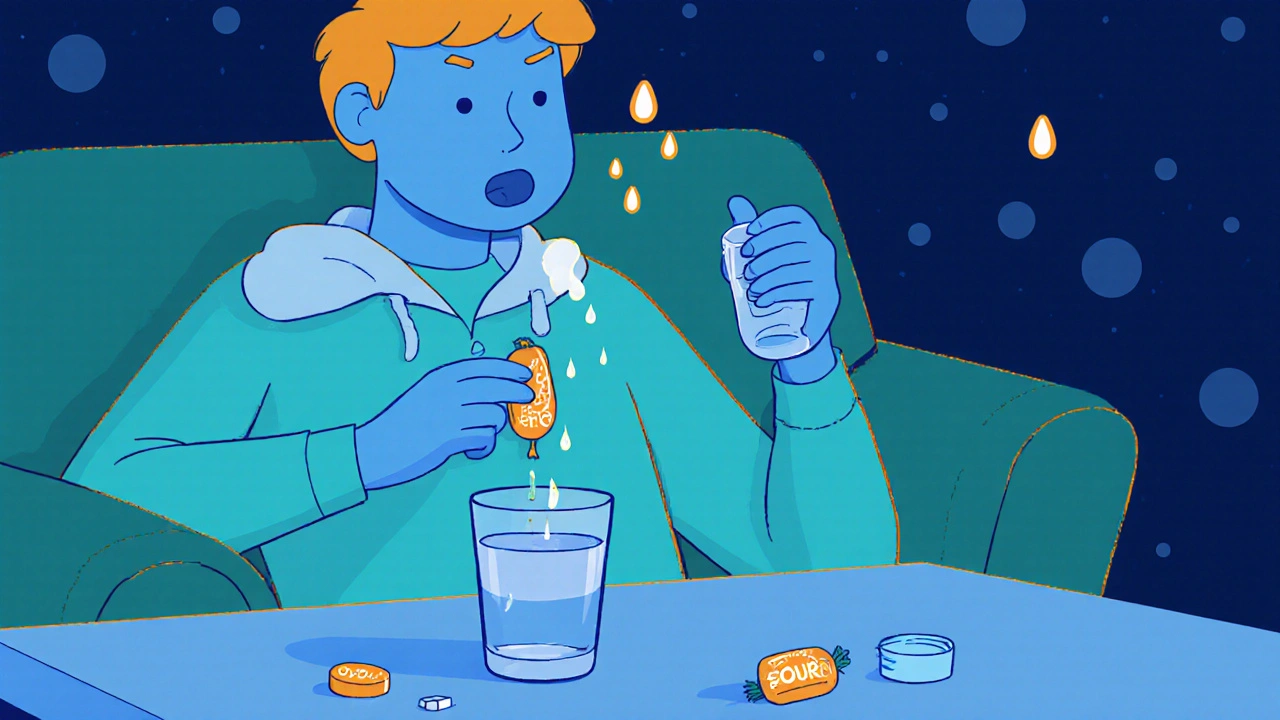
Managing Dry Mouth - The Sour Candy Trick
Dry mouth isn’t just annoying - it makes eating, talking, and sleeping hard. And it’s super common with antidepressants, blood pressure pills, and allergy meds. The fix? Keep your mouth moist and stimulate saliva. Sip water every 15-20 minutes. Don’t gulp - small sips work better. Then try sugar-free sour candies. Look for ones with citric acid and xylitol. The sour taste triggers saliva flow. A 2022 study in the Journal of the American Dental Association found this simple trick improved saliva production by 79% in just two days. XyliMelts, those little discs you stick to your gums, are another option. People on Reddit and Amazon rave about them. One user wrote: “I was about to quit my antidepressant because of dry mouth. Sour candies changed everything.”Recovering from Fatigue
Feeling wiped out on a new medication? You’re not lazy - your body is working hard to process the drug. The fix isn’t more coffee. It’s better sleep, better food, and movement. Aim for 7-9 hours of sleep. Poor sleep makes fatigue worse. Eat balanced meals: 45-65% carbs, 20-35% fats, 10-35% protein. Don’t skip meals. Low blood sugar adds to tiredness. And get moving - even a 20-minute walk three times a week helps. A National Institutes of Health trial showed 63% of people felt more energy within two weeks when they combined exercise with good sleep and nutrition.The Mindset Shift That Changes Everything
Here’s the part most doctors don’t tell you: how you think about side effects matters. Harvard researchers found that when patients were told, “These sensations mean your treatment is working,” they reported 40% less symptom intensity and 35% fewer calls to their doctor. It’s not magic. It’s psychology. This works best with meds that take weeks to kick in - like antidepressants, thyroid pills, or blood pressure drugs. If you’re on an antibiotic, this mindset won’t help much. But if you’re on an SSRI and you feel a little dizzy or nauseous on day 3? That’s not a sign it’s not working. That’s your brain adjusting. When you reframe it, the discomfort feels less scary. You’re more likely to stick with it.
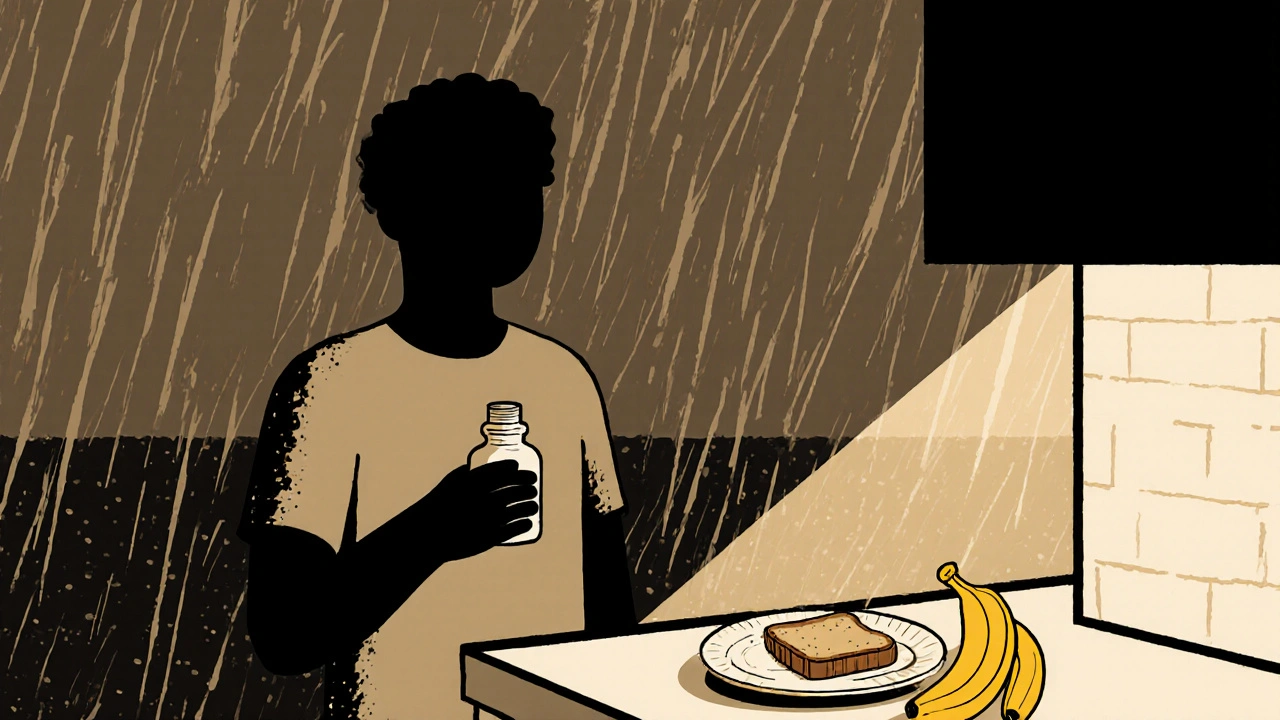
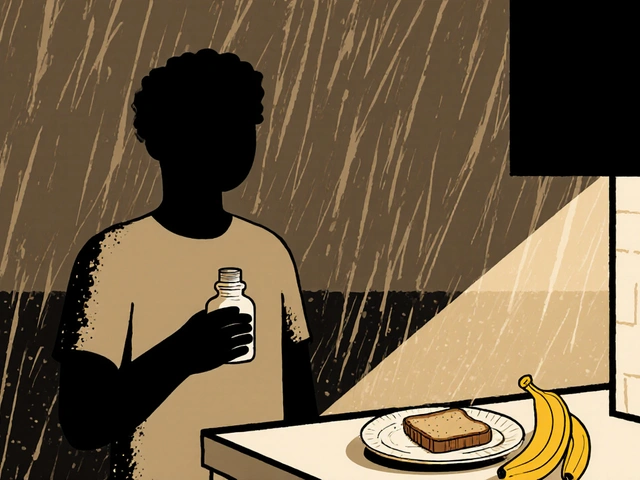
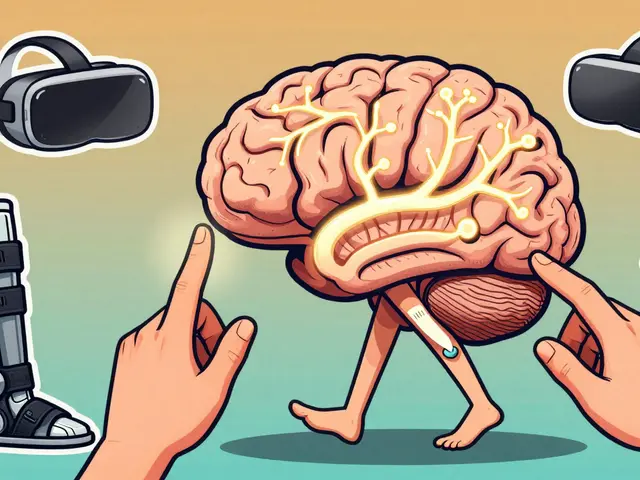
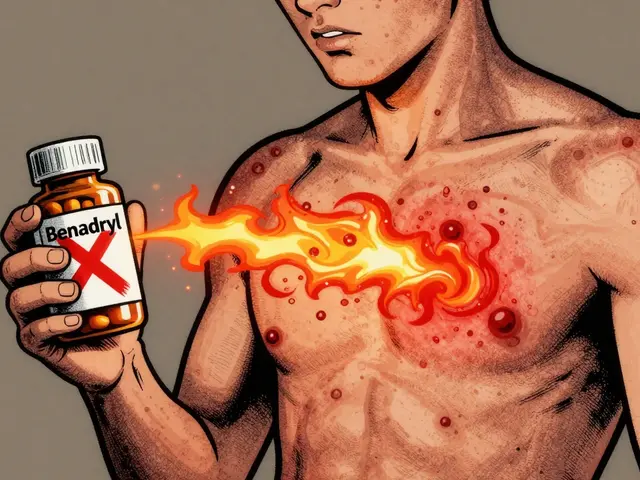

14 Comments
Danny Nicholls
November 23 2025omg yes!!! i was about to quit my antidepressant bc of dry mouth 😭 then i tried sour candies and now i feel like a new person 🍋✨ thanks for this 🙏
Robin Johnson
November 23 2025This is exactly what people need to hear. Most docs don't take the time to explain that side effects are temporary. I've seen patients quit meds over nausea when a simple timing shift fixes it. Don't assume it's broken-assume it's adjusting.
Ravi Kumar Gupta
November 24 2025Bro in India we just power through. My uncle took blood pressure meds for 12 years with dry mouth, constipation, dizziness-never stopped. Said, 'If the doctor says it saves life, then my mouth can stay dry.' Respect the process, not the discomfort.
Rahul Kanakarajan
November 25 2025You're telling people to keep taking meds because of a 'mindset shift'? That's not science, that's toxic positivity. If your body's screaming, listen. No amount of sour candy fixes a drug that's poisoning you.
New Yorkers
November 26 2025The real tragedy isn't the side effects-it's the systemic failure to treat patients like sentient beings who deserve to understand why their tongue feels like sandpaper. We've turned healthcare into a pill-dispensing assembly line. And now we're surprised people give up?
David Cunningham
November 27 2025Solid guide. I'm on an SSRI and the fatigue was brutal. Started walking 20 mins after dinner-no coffee, no naps-and within 10 days I felt like myself again. Movement > caffeine every time.
luke young
November 29 2025This is the kind of post that actually helps. I shared it with my mom who was thinking about ditching her statin because of muscle aches. She's still on it now, and her numbers are better than ever. Thanks for the clarity.
manish chaturvedi
November 30 2025In many South Asian households, medication adherence is treated as a moral duty rather than a medical strategy. While this can lead to unnecessary suffering, it also fosters resilience. Perhaps the West could learn from this cultural discipline-paired with proper education, of course.
Miruna Alexandru
November 30 2025You cite studies, but fail to acknowledge that the placebo effect in symptom perception is well-documented. Telling patients 'this means it's working' may reduce subjective reporting-but it doesn't alter pharmacokinetics. This is psychological band-aid medicine disguised as empowerment.
Julie Pulvino
November 30 2025I was skeptical at first but the sour candy trick actually saved me. I was on the verge of quitting my anxiety med, and now I keep a pack of Xylitol sour drops by my bed. Life-changing. Also, drinking water before bed helped my dry mouth so much. Just tiny tweaks!
Latonya Elarms-Radford
December 1 2025Let’s be real-modern medicine has become a corporate ballet of profit-driven prescriptions and patient neglect. We’re told to 'push through' side effects while the pharmaceutical industry profits from the very dependency they engineer. Is it really empowerment-or are we being trained to tolerate suffering as a condition of survival?
Mark Williams
December 1 2025The pharmacodynamic adaptation window for SSRIs is typically 4–6 weeks. Mild GI and CNS side effects during weeks 1–2 are GABAergic and serotonergic receptor downregulation artifacts. Hydration + circadian dosing modulates bioavailability. The BRAT diet reduces mucosal irritation via starch gel formation. Evidence-based, not anecdotal.
Daniel Jean-Baptiste
December 3 2025good stuff. i took my pill with a banana and it made a huge difference. also just drink water. so simple but no one tells you. thanks
james lucas
December 4 2025man i was about to quit my blood pressure med bc i felt like a zombie. then i started taking it at night and walking after dinner. now i sleep better and my energy’s back. this post is a lifesaver. seriously, thank you. also i spelled a few words wrong but you get the point lol